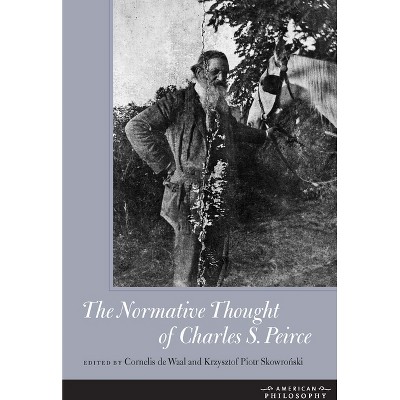About this item
Highlights
- The world of international politics has recently been rocked by a seemingly endless series of scandals involving auditory surveillance: the NSA's warrantless wiretapping is merely the most sensational example of what appears to be a universal practice today.
- About the Author: Peter Szendy is Professor of Philosophy at Université de Paris Ouest Nanterre and musicological adviser for concert programs at the Cité de la musique.
- 176 Pages
- Philosophy, Aesthetics
Description
About the Book
An archeology of auditory surveillance combined with an analysis of representations of spying in works of literature, music, and film that provide philosophical reflections on the drives that animate listening: the drive for mastery and the death drive.Book Synopsis
The world of international politics has recently been rocked by a seemingly endless series of scandals involving auditory surveillance: the NSA's warrantless wiretapping is merely the most sensational example of what appears to be a universal practice today. What is the source of this generalized principle of eavesdropping?
All Ears: The Aesthetics of Espionage traces the long history of moles from the Bible, through Jeremy Bentham's "panacoustic" project, all the way to the intelligence-gathering network called "Echelon." Together with this archeology of auditory surveillance, Szendy offers an engaging account of spycraft's representations in literature (Sophocles, Shakespeare, Joyce, Kafka, Borges), opera (Monteverdi, Mozart, Berg), and film (Lang, Hitchcock, Coppola, De Palma). Following in the footsteps of Orpheus, the book proposes a new concept of "overhearing" that connects the act of spying to an excessive intensification of listening. At the heart of listening Szendy locates the ear of the Other that manifests itself as the originary division of a "split-hearing" that turns the drive for mastery and surveillance into the death drive.Review Quotes
"Peter Szendy cleverly networks the history of surveillance and espionage to
the bandwidth of our current 'panacoustic' and digitalized era, allowing us to eavesdrop in on ourselves through the ear of the Other."--Gregg Lambert, Syracuse University
"Spying and surveilling--what Szendy himself expansively translates as 'overhearing'--are the rudiments of an old profession, 'perhaps the second oldest.' Hence the necessity of patiently patrolling the inner and outer corridors of power, of walking the wild and labyrinthine sides of 'our ears, ' the history of which Szendy has again been proved a masterful and exemplary listener. In this topical and gripping book, which records and samples from the best and the unexpected among spy stories (Sophocles, Kafka), theories (Sun Tzu, Bentham, Adorno, Derrida), operas (Monteverdi, Mozart, Berg), and films (Coppola, De Palma), Szendy urgently reaches for a new listening post, and flawlessly delivers."--Gil Anidjar, Columbia University
"Peter Szendy cleverly networks the history of surveillance and espionage to
the bandwidth of our current 'panacoustic' and digitalized era, allowing us to eavesdrop in on ourselves through the ear of the Other."--Gregg Lambert, Syracuse University
"Spying and surveilling--what Szendy himself expansively translates as 'overhearing'--are the rudiments of an old profession, 'perhaps the second oldest.' Hence the necessity of patiently patrolling the inner and outer corridors of power, of walking the wild and labyrinthine sides of 'our ears, ' the history of which Szendy has again been proved a masterful and exemplary listener. In this topical and gripping book, which records and samples from the best and the unexpected among spy stories (Sophocles, Kafka), theories (Sun Tzu, Bentham, Adorno, Derrida), operas (Monteverdi, Mozart, Berg), and films (Coppola, De Palma), Szendy urgently reaches for a new listening post, and flawlessly delivers."--Gil Anidjar, Columbia University
About the Author
Peter Szendy is Professor of Philosophy at Université de Paris Ouest Nanterre and musicological adviser for concert programs at the Cité de la musique. His books in English include Phantom Limbs: On Musical Bodies; Apocalypse-Cinema: 2012 and Other Ends of the World; Kant in the Land of Extraterrestrials: Cosmopolitical Philosofictions; Hits: Philosophy in the Jukebox; and Listen: A History of Our Ears (all Fordham). Roland Végso is Susan J. Rosowski Associate Professor of English at the University of Nebraska-Lincoln.












